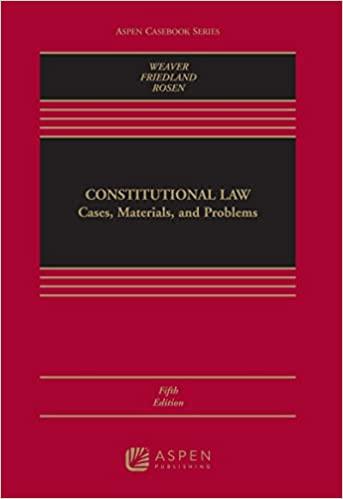Answered step by step
Verified Expert Solution
Question
1 Approved Answer
Lewis v Heartland Inns of America Number and Repeat each Statement below and Explain each Statement #1 - Alleging that she lost a job she
Lewis v Heartland Inns of America Number and Repeat each Statement below and Explain each Statement #1 - Alleging that she lost a job she had done well, solely because of unlawful sex stereotyping, Brenna Lewis brought this action for sex discrimination and retaliation against her former employer Heartland Inns of America, its Director of Operations and its Human Resource Director (collectively Heartland) based on Title VII and state law. The district court granted summary judgment to Heartland. We reverse and remand. #2 - Lewis asserts that Heartland terminated her for not conforming to sex stereotypes and contends that this conduct violated Title VII of the Civil Rights Act of 1964, and the Iowa Civil Rights Act of 1965. #3 - To make a prima facie case under the McDonnell Douglas framework, Lewis had to show that "(1) she was a member of the protected group; (2) she was qualified to perform the job; (3) she suffered an adverse employment action; and (4) circumstances permit an inference of discrimination.". #4 - In Price Waterhouse, where a female senior manager was denied partnership, partners involved in their decision had referred to her as "`macho'" and in need of "`a course at charm school[.]'" She was advised that to become a partner she should "`walk more femininely, talk more femininely, dress more femininely, wear make-up, have her hair styled, and wear jewelry.'" Such stereotypical attitudes violate Title VII if they lead to an adverse employment decision. The Price Waterhouse plurality's understanding that an employer might escape liability by showing that it would have made the same decision even without a discriminatory motive is no longer permissible because Congress provided otherwise, but the Court's conclusion that Title VII prohibits sex stereotyping endures. Like the plaintiff in Price Waterhouse, Lewis alleges that her employer found her unsuited for her job not because of her qualifications or her performance on the job, but because her appearance did not comport with its preferred feminine stereotype. #5 - As the Supreme Court explained in the Connecticut case cited [Title VII] is the protection of the individual employee, rather than the protection of the minority group as a whole." The district court's error was in requiring Lewis to offer evidence that similarly situated men were treated differently. #6 - The Supreme Court has stated that "[t]he critical issue" in a sex discrimination case is "whether members of one sex are exposed to disadvantageous terms or conditions of employment to which members of the other sex are not exposed." Neither these cases nor other Supreme Court precedents compel a woman alleging sex discrimination to prove that men were not subjected to the same challenged discriminatory conduct or to show that the discrimination affected anyone other than herself. As the Sixth Circuit succinctly stated, "[a]fter Price Waterhouse, an employer who discriminates against women because, for instance, they do not wear dresses or makeup, is engaging in sex discrimination because the discrimination would not occur but for the victim's sex." #7 - We recognize that "[r]emarks at work that are based on sex stereotypes do not inevitably prove that gender played a part in a particular employment decision. The plaintiff must show that the employer actually relied on her gender in making its decision." #8 State who won the case and why
Step by Step Solution
There are 3 Steps involved in it
Step: 1

Get Instant Access to Expert-Tailored Solutions
See step-by-step solutions with expert insights and AI powered tools for academic success
Step: 2

Step: 3

Ace Your Homework with AI
Get the answers you need in no time with our AI-driven, step-by-step assistance
Get Started


